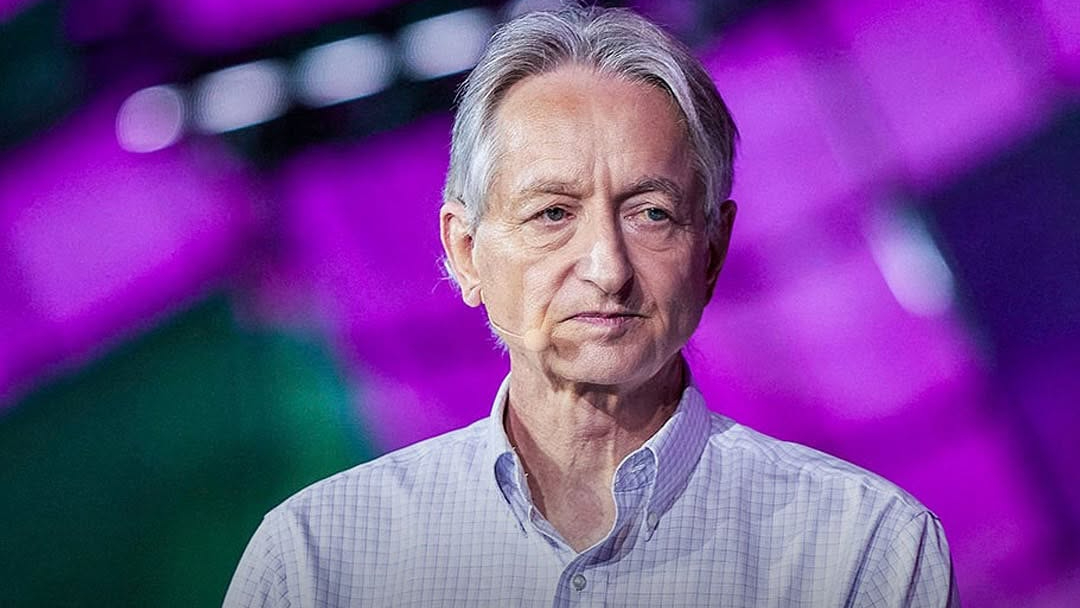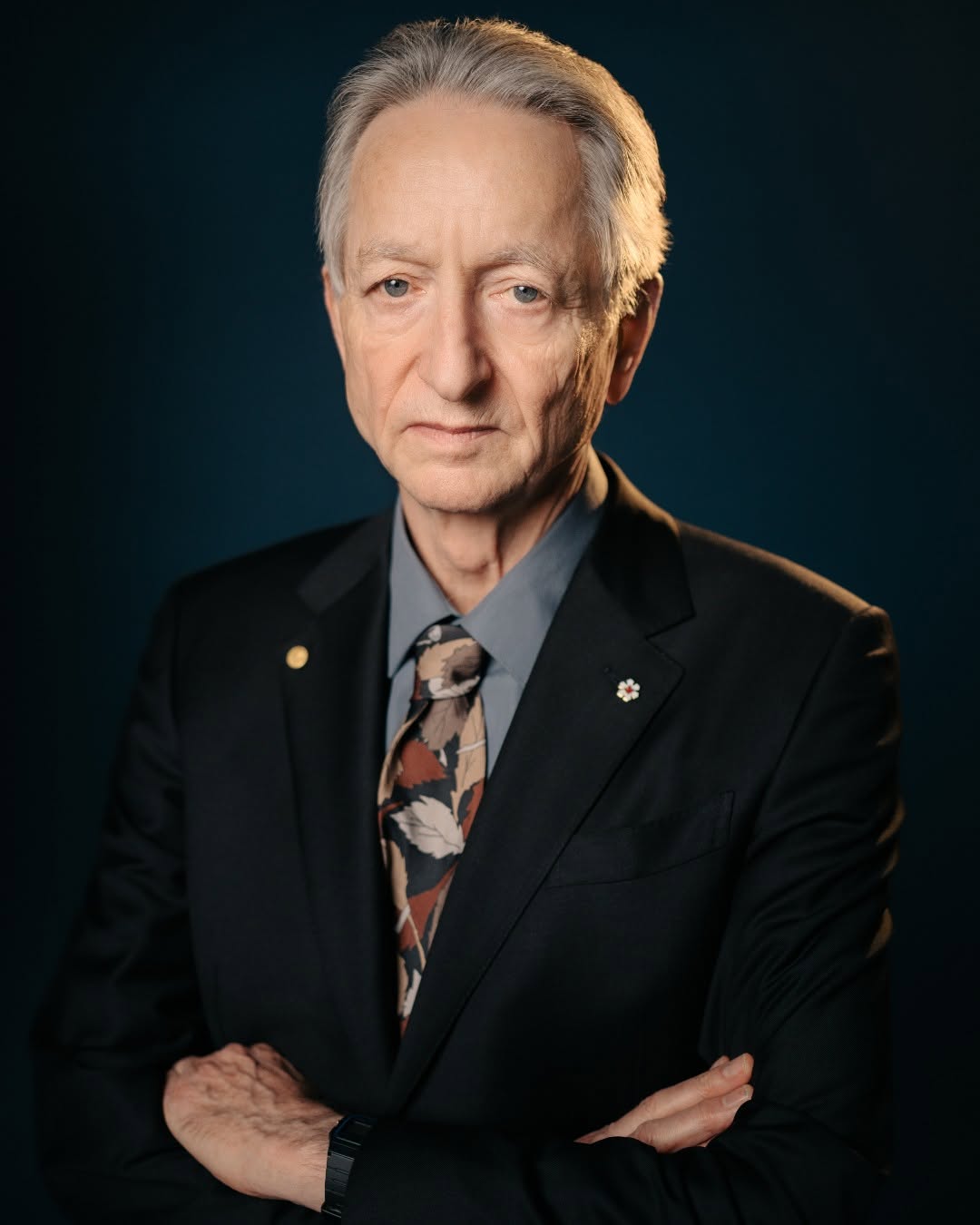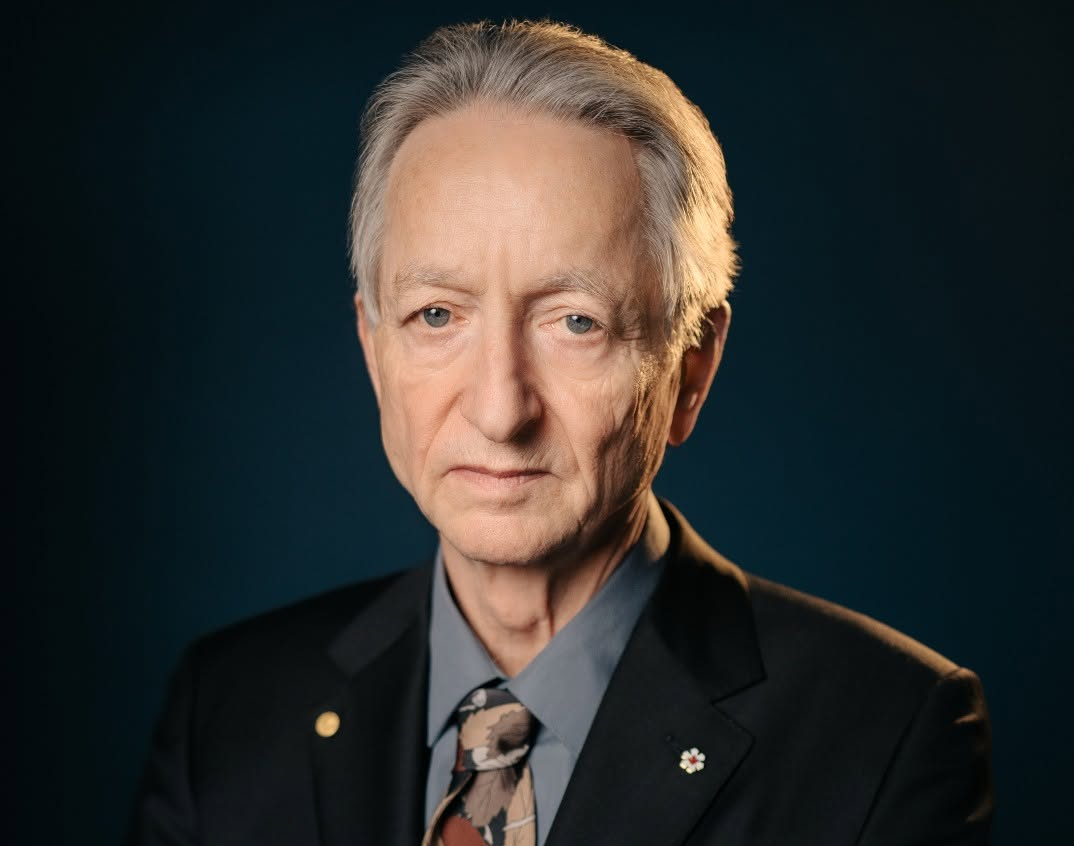Dr. Geoffrey Hinton: The Godfather of AI and His AI Journey
Dr. Geoffrey Hinton is widely regarded as one of the most influential figures in artificial intelligence. He is often called the “Godfather of AI” for his groundbreaking contributions to deep learning and neural networks, which have become the foundation of modern AI systems. This article explores his life, career, and the philosophical shifts that have made him both a celebrated pioneer and a cautious critic of the technology he helped create.
Who is considered the Godfather of AI?
Geoffrey Hinton is known as the "Godfather of AI" due to his foundational work on artificial neural networks and deep learning. This title is shared with his colleagues, Yoshua Bengio and Yann LeCun, with whom he developed the core concepts that launched the AI revolution. Their work transformed AI from a niche academic field into a technology with a global impact on everything from voice assistants to large language models.

Geoffrey Hinton
Why did Geoffrey Hinton win the Nobel Prize?
In 2018, Hinton, Bengio, and LeCun were awarded the Turing Award, widely considered the "Nobel Prize of Computing." They received this prestigious honor for their breakthroughs in deep learning, particularly for making neural networks practical and scalable. Before their work, AI was in a period known as the "AI Winter", where enthusiasm and funding for the field had waned due to limited progress. Their conceptual and engineering innovations provided the key to reviving the field and proving the immense potential of AI.
What did Geoffrey Hinton say about AI?
Hinton is both an advocate and a highly influential critic of AI. After a lifetime of championing the technology, he has grown increasingly vocal about its risks. He has warned that advanced AI systems could pose existential threats to humanity, including the risk of machines surpassing human intelligence and being used for malicious purposes. He is also concerned about the potential for widespread job displacement as AI becomes more capable.
The turning point in his public commentary came in May 2023, when he announced his departure from Google, where he had been working at Google Brain since 2013. He stated that he left in part so he could speak more freely about the dangers of AI without his views being seen as a reflection of the company's position.
What is Geoffrey Hinton's most famous paper?
One of his most famous and influential works is the 1986 paper, “Learning Representations by Back-Propagating Errors,” co-authored with David Rumelhart and Ronald J. Williams. This paper introduced the backpropagation algorithm, a mathematical method for efficiently training multi-layered neural networks. Before backpropagation, it was nearly impossible to effectively train these complex systems. The algorithm provided a way to adjust the network's internal parameters based on its errors, allowing it to learn from data and improve its performance. This single breakthrough became the foundation for virtually all modern deep learning applications.

Geoffrey Hinton
What degrees does Geoffrey Hinton have?
Hinton holds a Bachelor of Arts in Experimental Psychology from King’s College, Cambridge, and a Ph.D. in Artificial Intelligence from the University of Edinburgh in 1978. His academic background in both psychology and computer science gave him a unique perspective on how to design machines that could learn in a way that mimics human cognitive processes. He was uniquely positioned to draw parallels between the way the human brain processes information and how a computer could be designed to do the same.
Hinton’s Career and Legacy
Hinton’s career is a testament to his long-term vision. His early work was largely dismissed by the mainstream academic community, but he persisted for decades. He has held positions at prestigious institutions like Carnegie Mellon University and the University of Toronto.
A pivotal moment came in 2013 when Google acquired his small research company, DNNresearch, for a reported $44 million. This acquisition was a major turning point, as it signaled that deep learning was now a commercially viable technology. At Google, Hinton led research that directly influenced products like Google's image recognition and voice search. His student Alex Krizhevsky and collaborator Ilya Sutskever, also acquired in the deal, created AlexNet, which won the prestigious ImageNet competition in 2012, proving the power of deep learning and setting off a chain reaction that fueled the AI boom.
Hinton's true wealth is not financial but is in his enduring influence. He is known as a brilliant researcher and a generous mentor to many of the most influential figures in AI today. His legacy is one of persistence, groundbreaking discovery, and a deep sense of moral responsibility toward the technology he helped bring into the world. He has shaped not only the field of AI but also the global conversation about its future.
Related: This AI Agent Could Revolutionize How Small Businesses Automate in 2025
Related: Who Are the Big 4 AI Agents?














